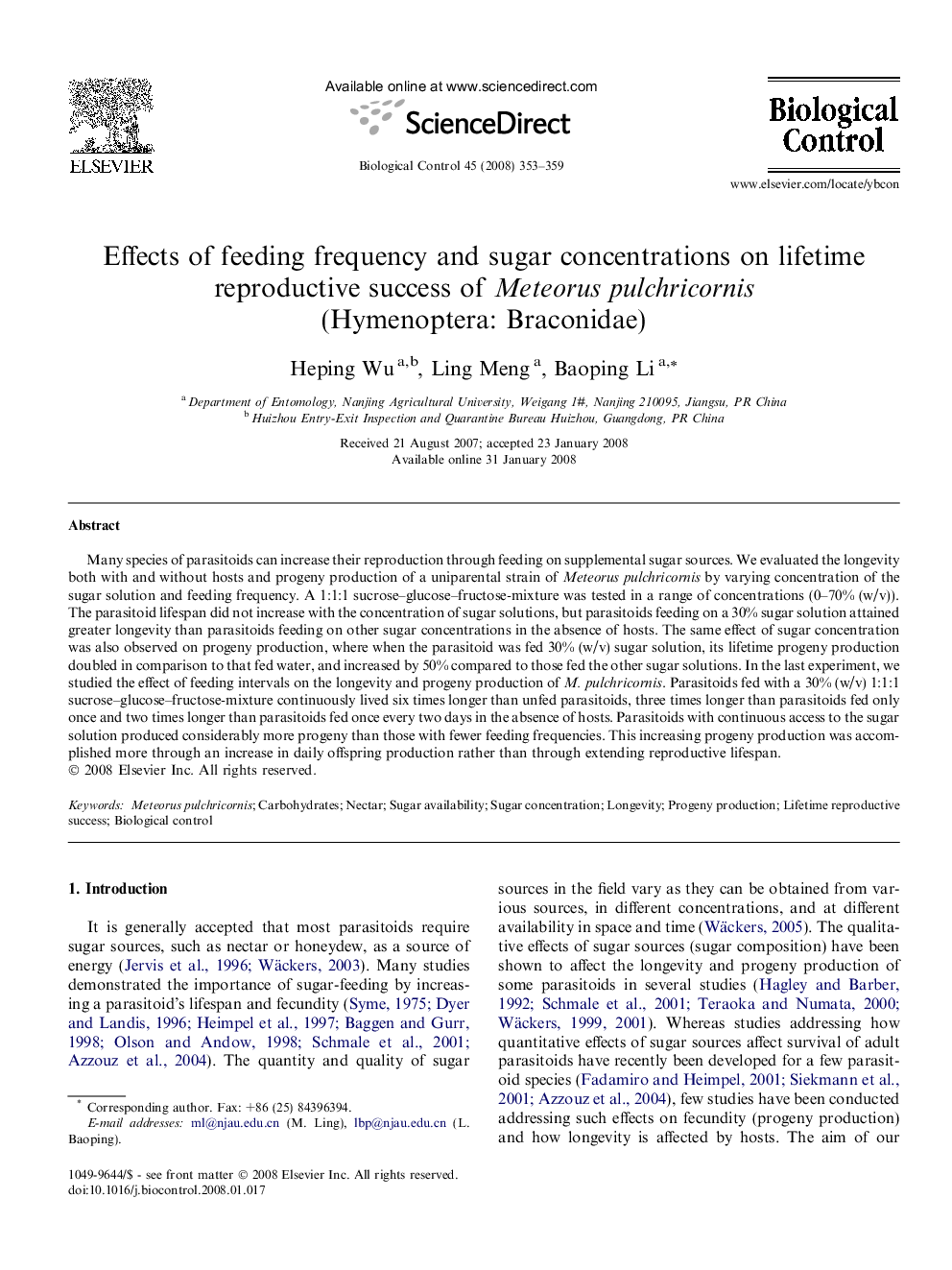| Article ID | Journal | Published Year | Pages | File Type |
|---|---|---|---|---|
| 4504966 | Biological Control | 2008 | 7 Pages |
Many species of parasitoids can increase their reproduction through feeding on supplemental sugar sources. We evaluated the longevity both with and without hosts and progeny production of a uniparental strain of Meteorus pulchricornis by varying concentration of the sugar solution and feeding frequency. A 1:1:1 sucrose–glucose–fructose-mixture was tested in a range of concentrations (0–70% (w/v)). The parasitoid lifespan did not increase with the concentration of sugar solutions, but parasitoids feeding on a 30% sugar solution attained greater longevity than parasitoids feeding on other sugar concentrations in the absence of hosts. The same effect of sugar concentration was also observed on progeny production, where when the parasitoid was fed 30% (w/v) sugar solution, its lifetime progeny production doubled in comparison to that fed water, and increased by 50% compared to those fed the other sugar solutions. In the last experiment, we studied the effect of feeding intervals on the longevity and progeny production of M. pulchricornis. Parasitoids fed with a 30% (w/v) 1:1:1 sucrose–glucose–fructose-mixture continuously lived six times longer than unfed parasitoids, three times longer than parasitoids fed only once and two times longer than parasitoids fed once every two days in the absence of hosts. Parasitoids with continuous access to the sugar solution produced considerably more progeny than those with fewer feeding frequencies. This increasing progeny production was accomplished more through an increase in daily offspring production rather than through extending reproductive lifespan.
